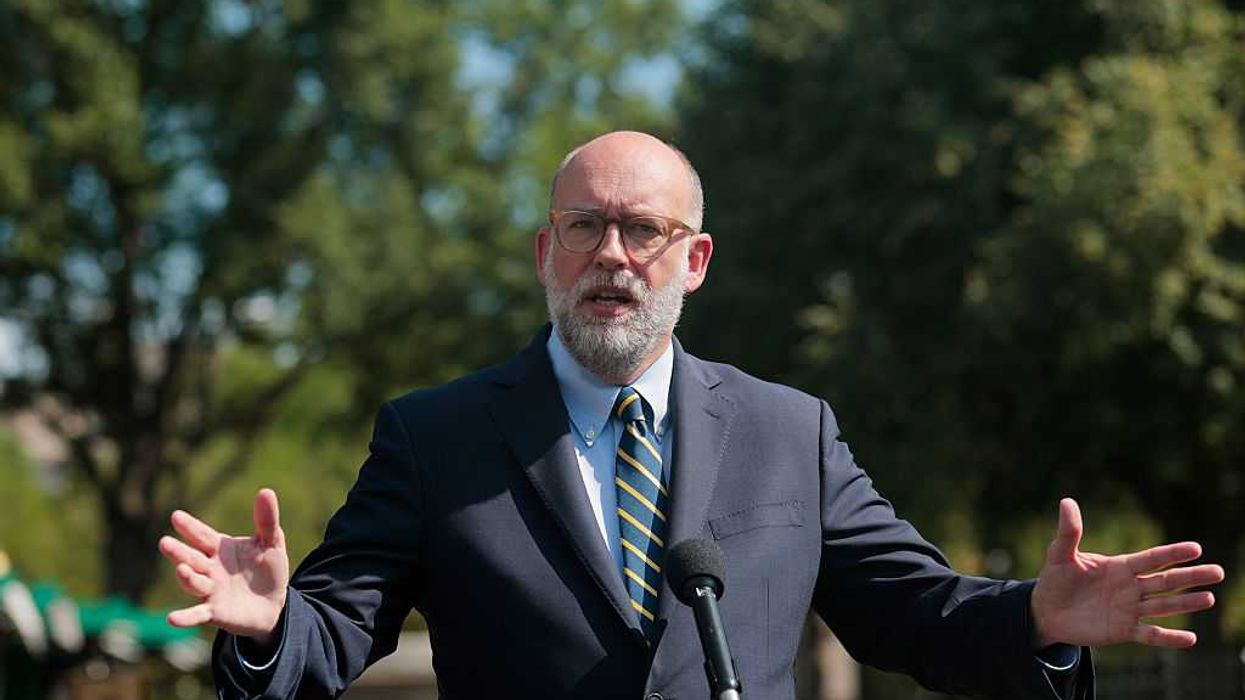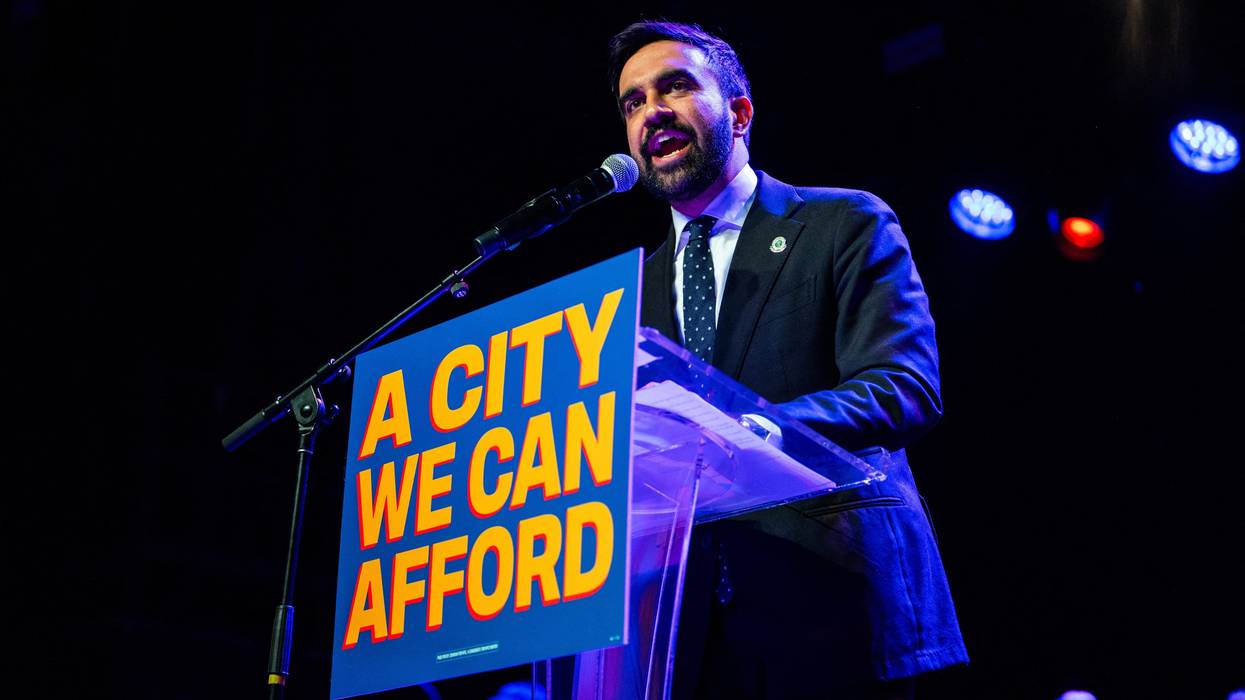In the days leading up to the shutdown, congressional Democrats attempted to force Republicans to roll back cuts to Medicaid and Affordable Care Act subsidies—cuts that are expected to result in as many as 15 million Americans losing their health insurance while raising premiums for tens of millions more. Trump and the GOP have blamed Democrats for the shutdown, falsely claiming that theyare pushing to fund free healthcare for "illegal aliens."
However, they've struggled to make this story land with the American public. A Washington Post poll released Thursday found that 47% of US adults blame Trump and Republicans for the shutdown, while just 30% blame Democrats and 23% say they are unsure. The sample was divided roughly equally between those who voted for Trump and those who voted for former Vice President Kamala Harris (D) in 2024.
In what Rep. Pramila Jayapal (D-Wash.) called an effort to use "taxpayer dollars to try and shift blame," the websites for numerous government agencies—including the US departments of Housing and Urban Development (HUD), as well as Justice, Agriculture, and several others—were updated with banners that blamed "Democrats" and the "Radical Left" for the shutdown.
Meanwhile, government employees, including those at the Small Business Administration (SBA) were directed to include similar partisan language in their out-of-office auto-reply emails.
Experts have told Politico that the use of taxpayer money for such explicit partisan messaging likely violates multiple ethics laws, including the Anti-Lobbying Act, which forbids the use of appropriated funds for lobbying activities designed to “support or defeat legislation pending before Congress.” It also pushes the boundaries of the Hatch Act, which requires federal programs to be used in a nonpartisan fashion.
The progressive consumer watchdog group Public Citizen said it has filed complaints against HUD and the SBA for what it said was an "obvious Hatch Act violation."
"The SBA and other agencies increasingly adopting this illegal, partisan tactic think they can get away with it because Trump has gutted any and all ethics oversight of the federal government," said Craig Holman, a government ethics expert with Public Citizen.
After being asked about Trump's promise to lay off "Democrats" at a press conference on Wednesday, Vice President JD Vance told reporters, "We are not targeting federal agencies based on politics."
But in a Truth Social post early Thursday morning Trump struck a somewhat different tone. He spoke of plans to meet with Russell Vought, the director of the White House's Office of Management and Budget (OMB), "to determine which of the many Democrat Agencies, most of which are a political SCAM, he recommends to be cut. I can’t believe the Radical Left Democrats gave me this unprecedented opportunity."
Trump also proudly described Vought as "he of PROJECT 2025 fame," referencing his leading role in crafting the Heritage Foundation's infamous blueprint for a far-right takeover of government—a takeover carried out in part through the purging of civil servants disloyal to Trump. During the 2024 election, Trump repeatedly insisted that he had "nothing to do with" Project 2025.
Vought has already begun to unilaterally withhold congressionally appropriated dollars for projects specifically for blue cities and states.
On Wednesday, he said that $18 billion in subway and tunnel funding for New York City had been “put on hold to ensure funding is not flowing based on unconstitutional [diversity, equity, and inclusion (DEI)] principles.” Not long before that, Trump had threatened to entirely cut off federal funding to the city if its voters elect the democratic socialist Zohran Mamdani, the Democratic nominee and current frontrunner, as its next mayor in November.
Vought then announced Thursday that he was also stripping away another nearly $8 billion worth of funding for climate-related projects, referring to it as "Green New SCAM funding to fuel the Left's climate agenda." Vought said that the funding was being withheld exclusively from projects in states led by Democrats: California, Colorado, Connecticut, Delaware, Hawaii, Illinois, Maryland, Massachusetts, Minnesota, New Hampshire, New Jersey, New Mexico, New York, Oregon, Vermont, and Washington state.
House Republicans were reportedly told by Vought on Wednesday that mass firings would also begin in "one to two" days, though he did not outline specifics about who would be fired. However, a memo Vought issued last week instructed agencies to prepare to eliminate employees “not consistent with the president’s priorities," triggering a lawsuit from federal workers' unions.
House Speaker Mike Johnson (R-La.) told the press Thursday that Vought was carrying out these cuts "reluctantly" and is "not enjoying the responsibility" of deciding which programs and employees get the axe.
But in an interview on Fox News, Sen. Mike Lee (R-Utah), a top Trump cheerleader, was a bit more candid, proudly declaring that Trump and Vought are using the shutdown specifically to hurt Democrats.
"They're doing it deliberately. It's going to harm them," Lee said. "Because Russ Vought, the OMB director, has been dreaming about this moment, preparing for this moment, since puberty."
Rep. Mike Levin (D-Calif.) said that "Vought is pushing a scheme to turn a government shutdown into a weapon to fire career civil servants and dismantle programs Congress has already passed into law. That is not only reckless. It is flatly illegal and unconstitutional."
"Have we ever had a president work so hard to hurt the people he represents?" asked Sen. Patty Murray (D-Wash.). "I'm not going to be intimidated by these crooks."




